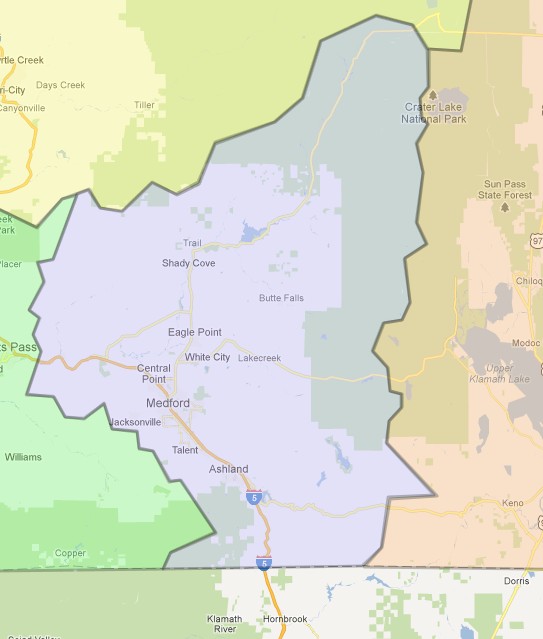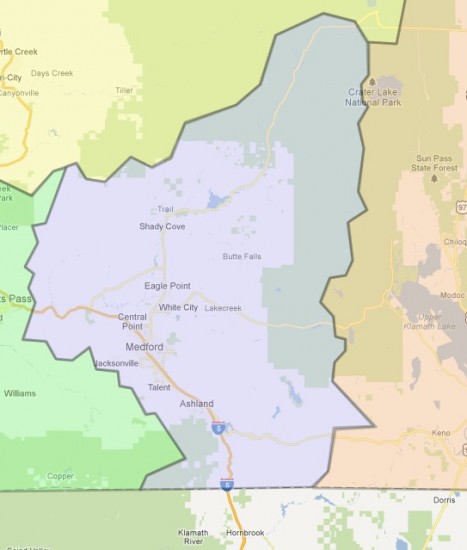If you want proof of the staying power of a genuinely bad idea, look no further than the primary ballot in Jackson County, Oregon. Voters there will decide on two county charter amendments. One is bizarre, one is both bizarre and pernicious, and both are backed by a Tea Party organization with national reach.
The amendments are an attempt to reanimate the corpse of Measure 37, an ill-conceived ballot initiative that would have yielded a truckload of unintended consequences had Oregon voters not quickly repealed it. But I’m getting ahead of myself.
Here’s the backstory. In 2004, Oregon passed Measure 37, under which any landowner who felt that a regulation reduced the “value” of his or her property would be eligible for a cash payment from the government or a waiver from the regulation. (Sometimes called “pay-or-waive” laws, these kinds of laws amount to drastic expansions of the legal meaning of a “regulatory taking“.)
Can’t build a subdivision on your farmland? The government would have to pay you or waive the law. There were logging companies that wanted to clearcut their forests unless they were paid not to, while other forest landowners threatened to build housing developments in working forests. One fellow claimed the government needed to pay him to prevent him from mining inside a national monument.
Needless to say, local governments could not possibly have paid out the claims, which often ranged into tens of millions of dollars. The result—and what Measure 37 intended all along—was to waive land use laws in favor of letting private property owners do pretty much whatever they wanted.
Measure 37 created absurd incentives and a huge amount of disruption. It wasn’t surprising that in 2007, just three years after it became law, Oregon voters approved Measure 49 by a landslide, effectively repealing the worst elements of 37.
Now, though, Jackson County is considering two charter amendments:
- 15-110 would “declare a county policy opposing statewide land-use planning.” As far as I can tell this amendment would basically have no legal force; all it would do is generate symbolic language in opposition to Oregon’s planning laws.
- 15-111 would actually attempt to reinstate Measure 37, but only within Jackson County. But it is an unworkable idea for at least two reasons.
For one thing, Measure 49 wiped out Measure 37 at the state level (something that even the backers of the Jackson County amendments concede). It’s not clear how a county can, in effect, override state law. So even if the amendment passes, it’s almost certainly unenforceable.
That’s a good thing. If it were enforceable, it would make for an even more ruinous version of the original Measure 37 because Jackson County would apparently have to waive state land use laws over which it has no authority, or else pay out cash claims with money that it certainly does not have. It would be disastrous.
Not only that, but throwing Jackson County land use into disarray is a bum deal for the local economy and quality of life. For example, Applegate Valley farmer Ted Warrick’s story illustrates the problem well. Bordered on three sides by properties with Measure 37 claims, the law would have left him nearly surrounded by suburban subdivisions and a gravel quarry—uses that are not allowed under existing law and that would have severely threatened his vineyard’s viability.
It’s worth noting that the Jackson County charter amendments are backed by the Oregon chapter of Americans For Prosperity, a political advocacy group closely associated with the Tea Party and backed financially by the Koch brothers. It should be concerning for those who value democratic governance and community planning that Tea Party surrogates are testing the waters for another attempt at making property rights an anything-goes proposition in Oregon.











Anthony Avery
Under the law, would Ted Warrick then be eligible to claim payment from… I’m not sure who. The county, developers, or residents?… for loss of economic viability from his previously profitable business?